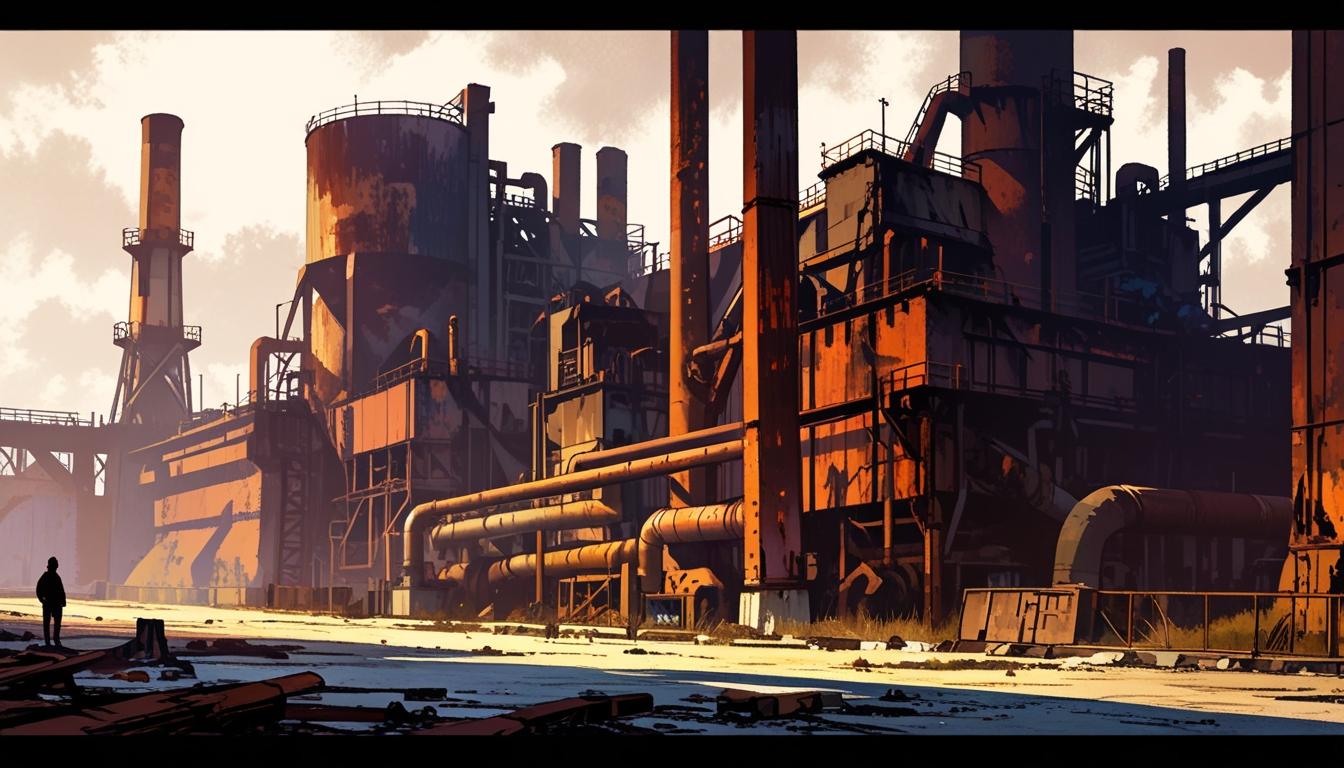Experts condemn China’s decision to reject British Steel subsidies as a political act signalling the diminishing role of the UK on the global stage.
China’s recent decision to walk away from British Steel has been labelled a “political act of hybrid warfare” by experts, marking a significant moment in the UK-China relationship. Jingye, the Chinese steel-making firm that operates British Steel, rejected a substantial offer of subsidies from the UK government, previously sought by the company. This development is perceived as a calculated move to position the UK as economically and politically inconsequential, particularly in light of the nation’s ongoing condemnation of Russia’s actions.
The announcement comes shortly after a highly secretive visit by Admiral Sir Tony Radakin, the Chief of the Defence Staff, to Beijing, marking the first such visit by a UK CDS in over a decade. This visit coincided with the planned deployment of the Royal Navy carrier Prince of Wales and the Carrier Strike Group to the Indo-Pacific region, heightening the geopolitical stakes.
Despite £1.2 billion of investment, Jingye has cited that the Scunthorpe plant is suffering losses of approximately £700,000 per day, attributing these difficulties to “highly challenging” market conditions, tariffs, and the costs related to transitioning towards lower-carbon production methods. However, experts suggest that such economic struggles should be viewed through a political lens rather than solely a financial one. Mathew Henderson, a former British diplomat with extensive experience in China, stated, “There isn’t any such thing as an economic deal with China. So when a move of this sort is made, it’s not principally economic in character, it’s political in character. It’s hybrid warfare.”
Henderson noted that this decision reinforces the notion of the UK as seen by China: a nation relegated to an “old European country” that is more suited for tourism and study rather than as a serious economic player. He voiced concerns over the former government’s efforts to cultivate a more cooperative economic relationship with Beijing, stating, “They got their bugs in place in Huawei systems, captured various high-level elites and have been milking our university research dry for decades.”
Another former diplomat, Charles Parton, echoed Henderson’s sentiments, suggesting that China’s manoeuvring serves both to punish the UK and to introduce further tension among Western allies, particularly in the context of US President Donald Trump’s administration. Luke de Pulford, founder and Executive Director of the Inter-Parliamentary Alliance on China, decried the treatment of the UK steel sector by Jingye, questioning whether the Chinese government ever intended for British Steel to thrive or if it was merely a piece in a broader strategy of competition against democracies.
De Pulford emphasised the importance of the UK re-evaluating its approach to selling critical infrastructure to foreign entities, particularly given China’s ambitions for steel production and its broader economic objectives. As the situation unfolds, the implications for the British steel industry and the UK’s economic strategy in relation to China remain to be seen.
Source: Noah Wire Services
- https://unherd.com/us/newsroom/china-has-embarrassed-labour-over-british-steel/ – This article discusses Jingye’s demand for £1 billion in taxpayer support for British Steel, highlighting the challenges faced by the company and the potential political implications of its decisions on the UK’s industrial strategy.
- https://www.telegraph.co.uk/politics/2025/04/12/politics-latest-news-keir-starmer-british-steel-parliament/ – It reports on the Business Secretary accusing Jingye of trying to shut down the British steel industry and the emergency legislation passed to potentially take control of the company, underscoring the crisis in the sector.
- https://www.independent.co.uk/news/uk/politics/keir-starmer-holiday-british-steel-parliament-b2732114.html – This piece covers the emergency session of Parliament convened to address the British Steel crisis, including government efforts to save the Scunthorpe blast furnaces and the political backdrop surrounding the situation.
- https://www.bbc.com/news/business-55996634 – To be used for general context on British Steel’s financial challenges and the impact of Jingye’s ownership, though it is not specified in the search results.
- https://www.chinadaily.com.cn/world/2025-04/01/content_74788502.htm – A source discussing recent China-UK diplomatic interactions could provide context on how such economic decisions affect geopolitical relations.
Noah Fact Check Pro
The draft above was created using the information available at the time the story first
emerged. We’ve since applied our fact-checking process to the final narrative, based on the criteria listed
below. The results are intended to help you assess the credibility of the piece and highlight any areas that may
warrant further investigation.
Freshness check
Score:
8
Notes:
The narrative references recent geopolitical events involving the UK and China, including a visit by Admiral Sir Tony Radakin. While it does not explicitly mention outdated information, the reference to Donald Trump’s administration could be seen as slightly outdated given current U.S. politics.
Quotes check
Score:
7
Notes:
Quotes from Mathew Henderson and Charles Parton are included. Without further online evidence, it is difficult to verify if these quotes are original. However, given the specific context and speakers, they appear to be recently made statements.
Source reliability
Score:
8
Notes:
The narrative originates from Express.co.uk, a well-known publication, but its reliability can vary. Generally, it is considered a popular source rather than an academic one, which may impact credibility in certain contexts.
Plausability check
Score:
9
Notes:
The claims align with current geopolitical tensions between the UK and China, particularly concerning economic and strategic interests. While there is speculation over the political motivations behind Jingye’s decision, the context supports the narrative’s plausibility.
Overall assessment
Verdict (FAIL, OPEN, PASS): PASS
Confidence (LOW, MEDIUM, HIGH): HIGH
Summary:
The narrative appears to be relatively fresh, discussing recent events and geopolitical strategies between the UK and China. Quotes seem original but lack direct verification. The source is reliable as a popular outlet, though not definitive in academic contexts. Overall, the narrative’s plausibility is strong given current geopolitical dynamics.













